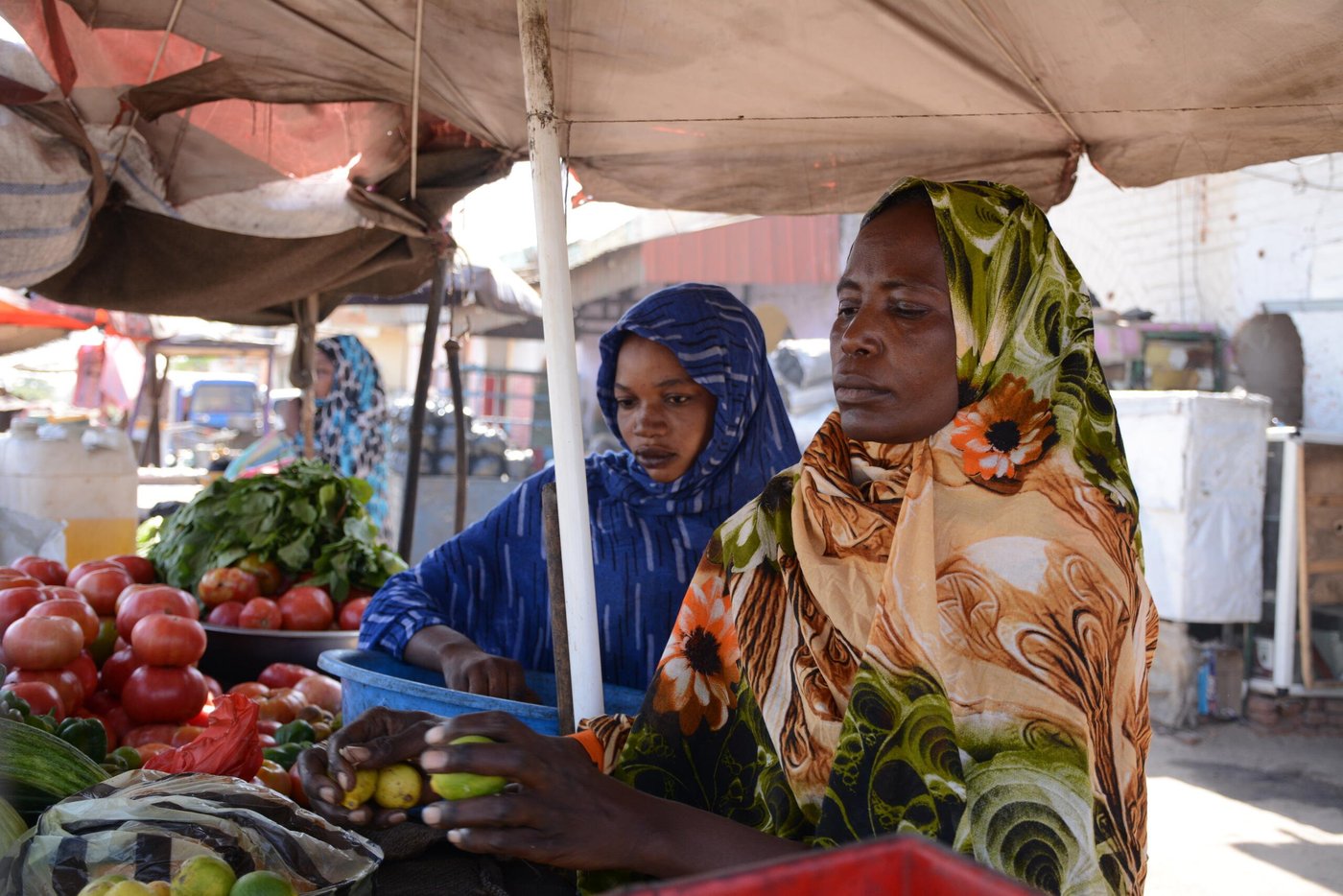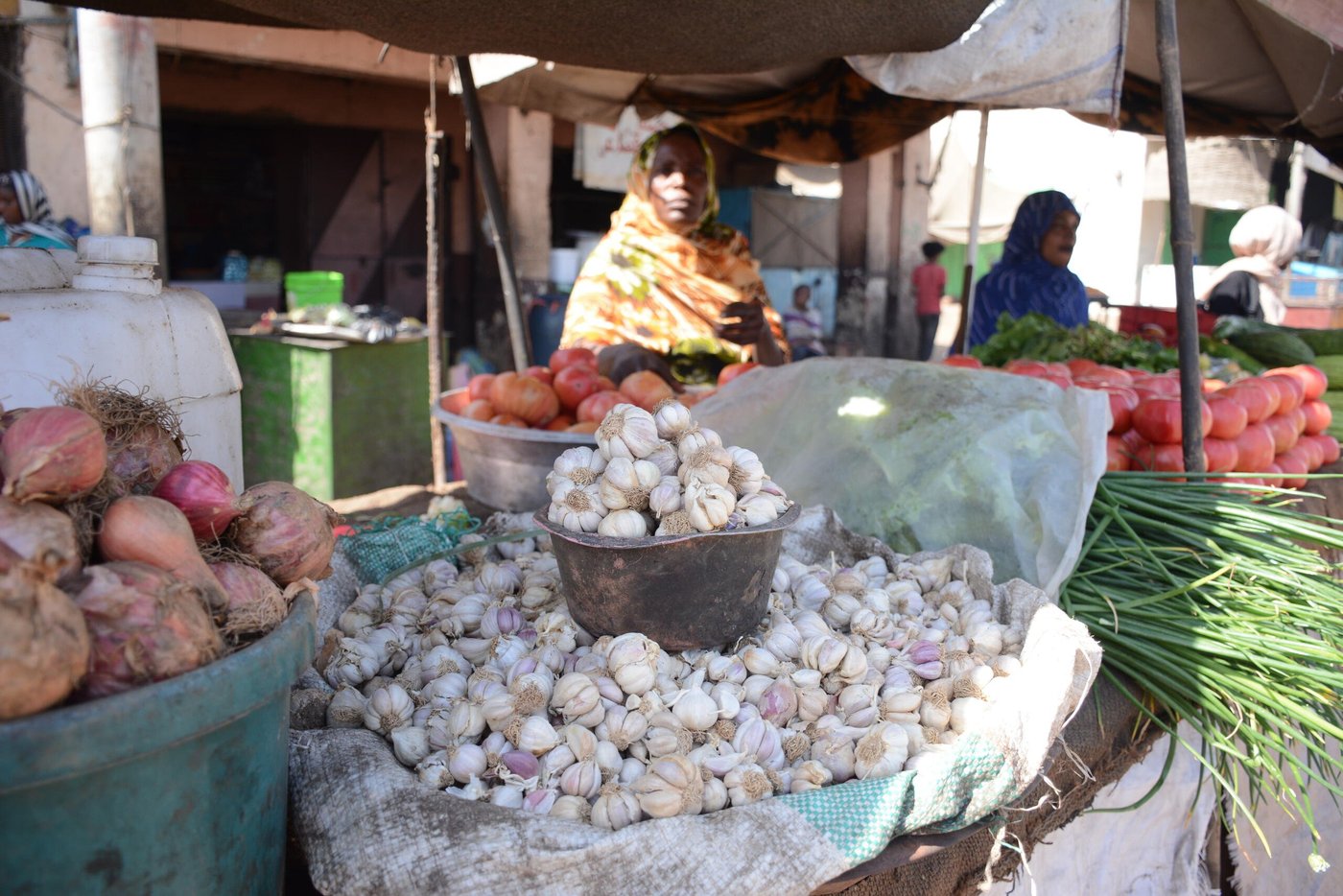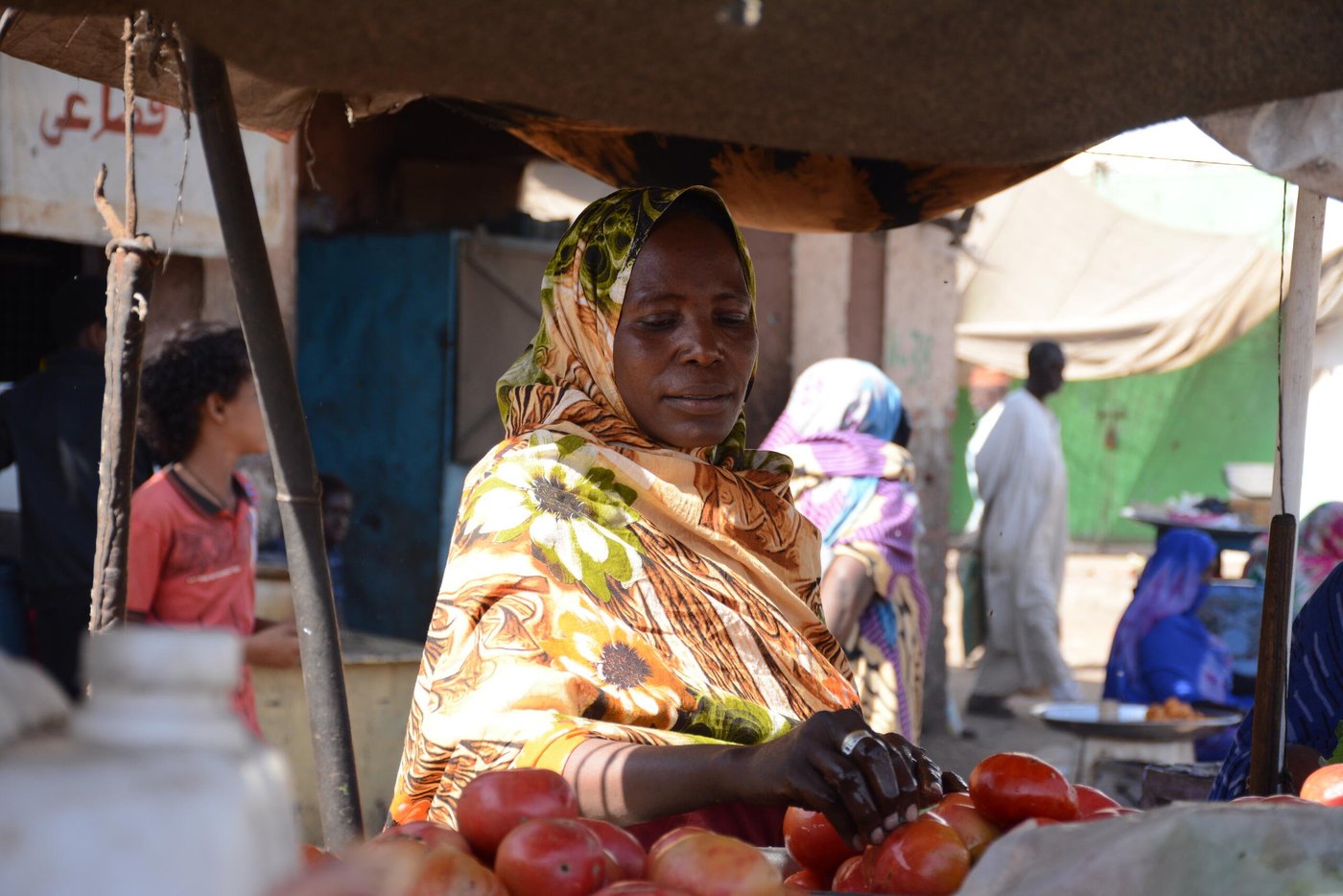"I lost everything"
Two years of war in Sudan have torn apart the lives of millions, displacing nearly 15 million people inside and outside the country, with over 11 million forced to flee within Sudan alone. The fighting has been relentless. Armed men have roamed free across cities and villages, committing atrocities with impunity while peace efforts have faltered. Humanitarian aid, already woefully underfunded, has struggled to keep up as global support dwindles, despite nearly half the population now facing hunger.
In this bleak reality, Salwa’s story stands out as a powerful testament to what can still be salvaged when even the smallest seeds of support are planted in the right hands.
“I used to have a shop before the war,” Salwa says. “But it was looted. I lost everything. I’m still paying instalments on the goods that were stolen.”
The war left her reeling, not just without a livelihood, but without a way to care for her family. Although unmarried, she is the only one providing for her extended family of 12 people. All her siblings lost their jobs, and some were also wounded by the war. She had no means to send her nieces and nephews to school, no way to afford daily essentials like soap and water. In a place where prices change daily - always upward - and families are one meal away from hunger, Salwa had reached a breaking point.

The impact of cash support
That changed when she became one of 75 women in Al Geneina selected to benefit from a small business grant from the Norwegian Refugee Council (NRC), supported by the Swiss Agency for Development and Cooperation (SDC). As part of the initiative, she received five days of business training followed by tailored mentorship and a one-off cash grant to invest in her business.
“We didn’t know how to manage a business before,” Salwa says. “We just bought and sold. But after the training, we learnt how to calculate profits, how to reinvest, what’s good and what’s not. We know how to put money into everything. Now we know what we’re doing.”
That training, paired with the grant, part of an USD 85,000 initiative shared among the 75 women, allowed Salwa to rebuild her business from the ground up. With the funds, she stocked her stall with fresh produce and ingredients, bought cooking supplies, and resumed her early morning routine: arriving at 7am, cooking beans, and heading to the farmers’ market for vegetables.
The impact has been transformative. With her profits, Salwa can now afford to send her nieces and nephews to school. Her small enterprise does more than feed her family, it restores a measure of dignity at a time when so many have lost everything.
“Conditions are difficult, prices are rising every day,” she says. “But if we don’t work, we can’t even buy breakfast or lunch for our children. So, we work.”
And she does so with a generosity that belies the hardship she faces. Many of her customers, like her, are struggling. “A lot of people want to buy but don’t have money,” she says. “So I go easy on them. They need to eat just as we need to eat.”

The conflict that has consumed Sudan since April 2023 is now one of the world’s worst humanitarian crises, yet the global response remains alarmingly inadequate. Funding shortfalls have forced aid agencies like NRC to suspend support to farmers, close down help centres, and scale back education programmes, even as famine looms and the country teeters on collapse.
Salwa dreams of expanding her business, of starting new ventures. “If we get more support, we can open another project,” she says.
“I wish for a better future.”
Sign up to our newsletter to read more stories from around the world.


